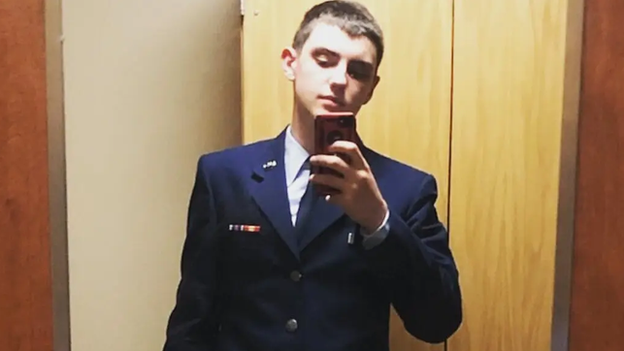The biggest intelligence leaks in US history
- Published
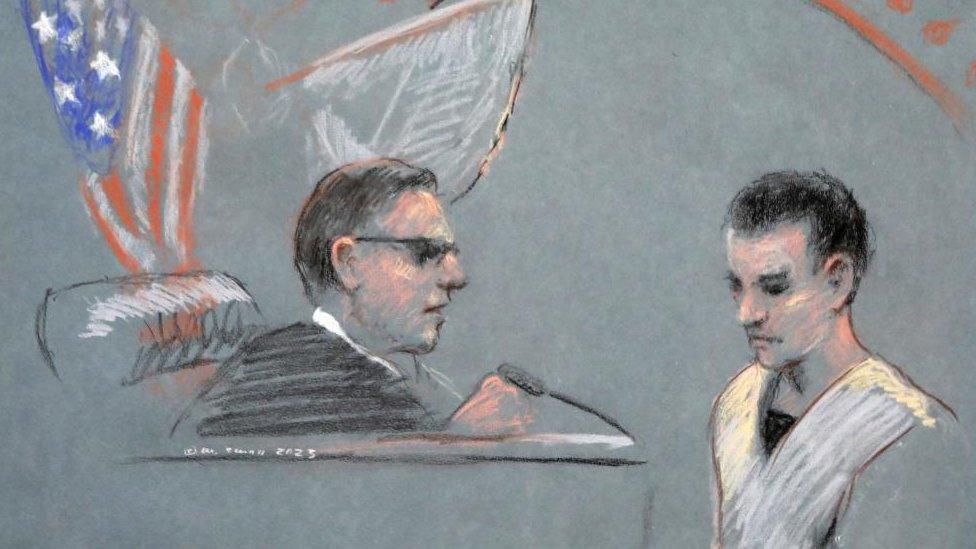
A court sketch of Jack Teixeira's appearance in federal court on Friday
The latest leak rocking the US intelligence world is not the first time classified documents have made their way into the public eye.
On Friday, the US government charged Jack Teixeira, a 21-year-old employee with the Massachusetts Air National Guard's intelligence wing, for allegedly leaking highly sensitive documents on to the internet.
Major news organisations Bellingcat, the New York Times and the Washington Post have reported Mr Teixeira posted the highly sensitive documents to a private group on the social media platform Discord. The documents eventually leaked on to the wider internet.
They provide details into recent conditions in Ukraine, as well as intelligence on US allies like South Korea and Israel. The leaks come at a sensitive moment in Ukraine's war against Russia, as the conflict enters its second year.
This leak is the latest in a long line of unexpected disclosures of classified US documents. Some of them changed the course of US history and were hailed as heroic - while others landed their leakers in prison for years.
The Pentagon Papers
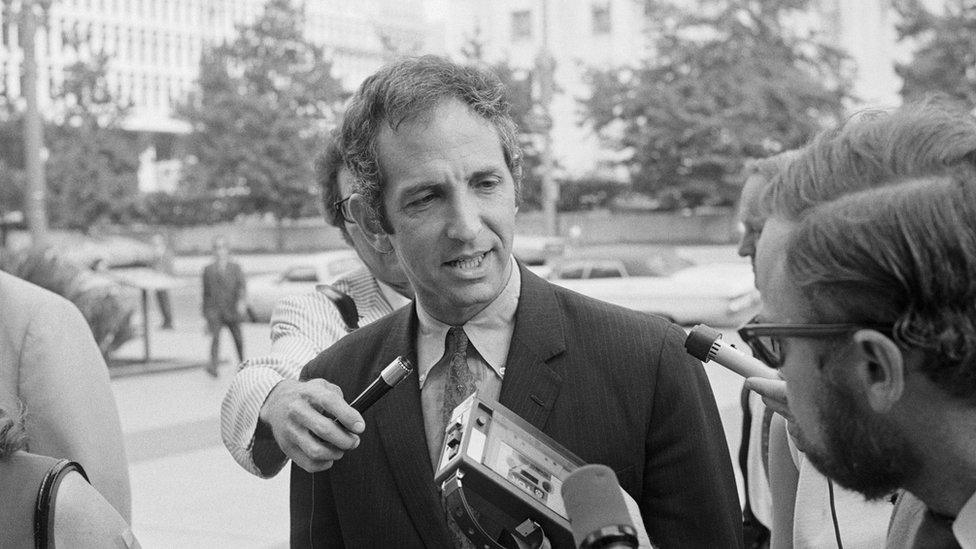
Daniel Ellsberg in the 1970s
The release of the Pentagon Papers is perhaps the most famous and impactful leak of classified documents in US history.
In 1971, Daniel Ellsberg, an analyst at the RAND Corporation, leaked a report commissioned by the US military about the Vietnam War. The conflict was widely criticised at home and abroad, and the report revealed the extent to which the US government had kept details from the public.
The New York Times used the documents to publish a blockbuster expose on the scope of America's actions in Vietnam.
Mr Ellsberg was initially charged with espionage, but a judge dismissed the charges 1973. Now 92, he is now considered one of the most important government whistleblowers in US history, and a well-known advocate for government transparency.
The NSA leaks
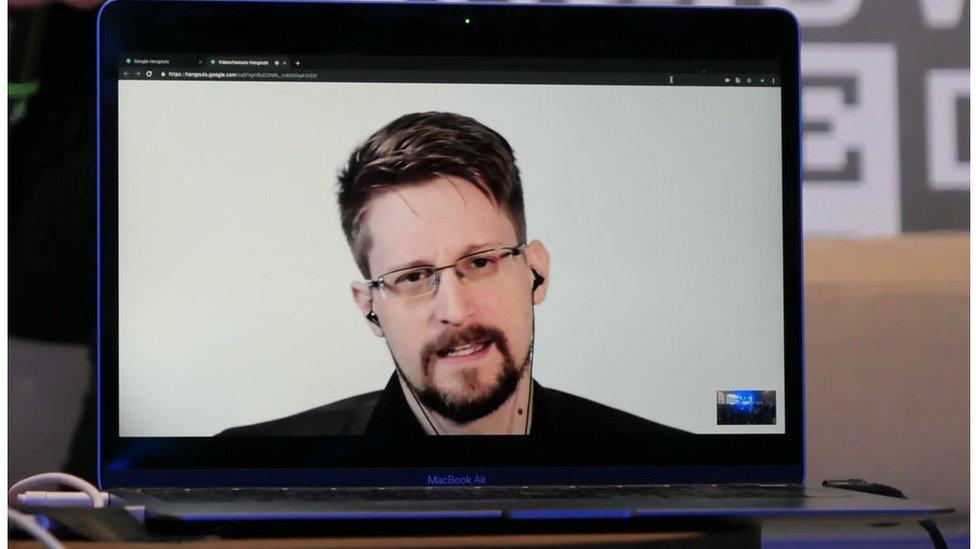
Edward Snowden in 2019
In 2013, Edward Snowden leaked a tranche of intelligence documents to the Guardian and the Washington Post, showing that the US government was illegally collecting citizens' phone data.
The documents revealed the inner workings of the secretive National Security Agency, one of the primary US intelligence agencies. They also shed significant light on the secretive data collection actions taken by governments around the world, including US allies like the UK, Australia and New Zealand.
The trove of documents provided to the newspapers are some of the largest leaks in US history. The US government charged Mr Snowden with espionage and theft of government property, and Mr Snowden eventually gained asylum in Russia, where he now lives in exile.
He has become an advocate for protecting journalists against surveillance.
Chelsea Manning and Wikileaks
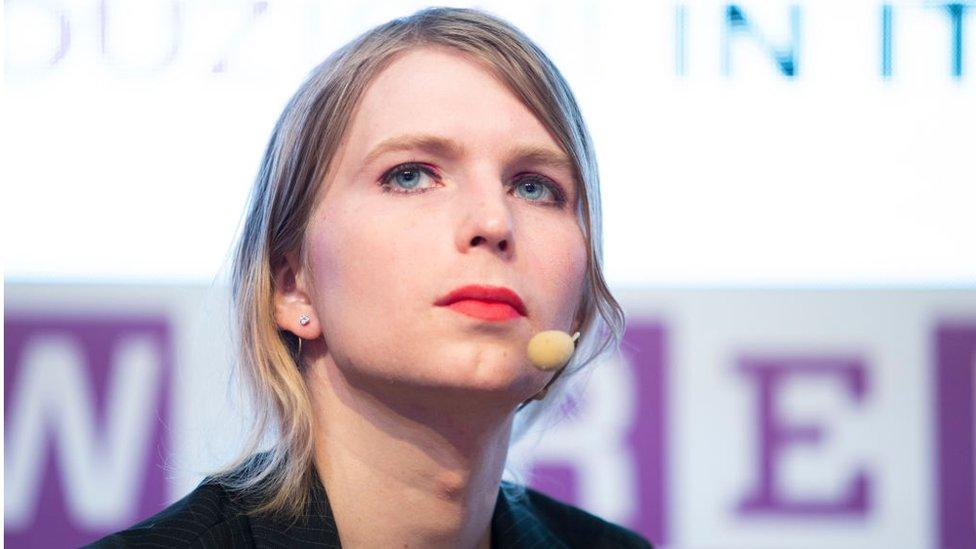
Chelsea Manning
In 2010, Chelsea Manning, then a soldier and analyst in the US Army, began sharing thousands of classified documents with Wikileaks. The organisation, then led by Julian Assange, was dedicated to publishing secret documents provided to the media.
The trove of documents provided by Manning contained details about the wars in Iraq and Afghanistan, as well as a tranche of diplomatic cables. Wikileaks then made many of them public and the documents were covered by major media organisations.
One of the most notable disclosures was a graphic video of a US Apache helicopter killing 12 civilians, including two Reuters journalists, in Baghdad in 2007.
Manning was ultimately sentenced to 35 years in prison. Her sentence was commuted by President Barack Obama 2017, after she had served for seven years.
Manning unsuccessfully ran for the US Senate in 2018.
The Reality Winner case
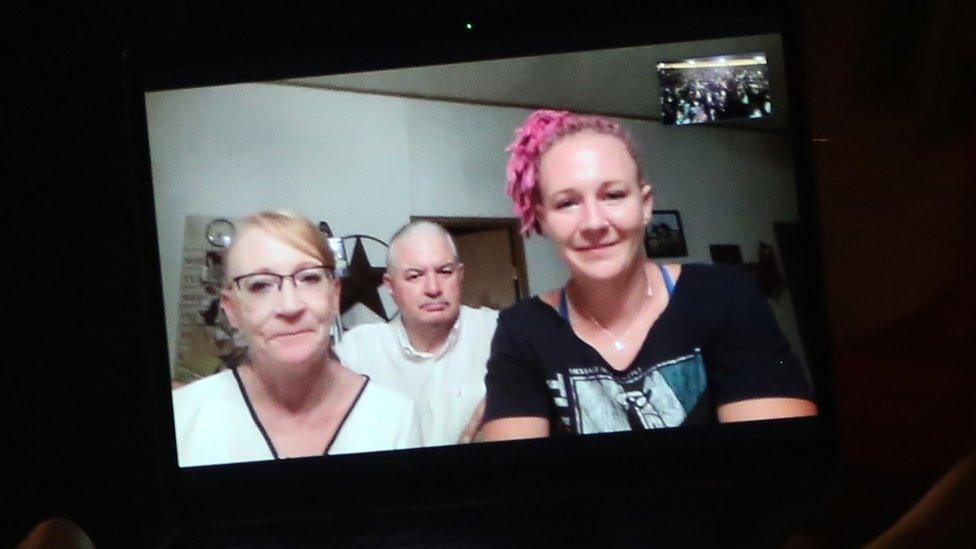
Reality Winner, right, seen on a Zoom call.
In 2017, a former Air Force member and NSA translator, Reality Winner, was arrested and charged for providing a classified report to news website The Intercept.
The document detailed one of Russia's efforts to interfere in the 2016 US presidential election by employing a phishing scheme against local election officials.
Winner posted the document anonymously, but federal investigators were able to deduce its origins when The Intercept provided it to the NSA for verification.
After her arrest, Winner told the US television programme 60 minutes that she felt compelled to tell Americans the truth about Russia's attempts to meddle in the 2016 election, given then-President Donald Trump's repeated denials.
She had believed that "somebody needs to step forward and put this right," she told 60 Minutes.
Winner was found guilty of leaking the documents to a media organisation. She spent four years in prison and was released on probation in 2021.
Related topics
- Published15 April 2023

- Published13 April 2023
